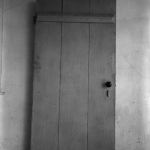A couple of years ago, when I was trying to find a community of witches in LA, I attended a Dance of Universal Peace. I didn’t really want to–Dances of Universal Peace, on their face, didn’t really look like my thing–but the Meetup organizer told me that the event was required if I wanted to join the private group. It was an audition.
I’ve written about the creep show that group turned out to be, but right now I want to focus on one particular aspect of the Dance of Universal Peace that I found troubling. The event, which consisted of specific movements set to chants (some of them appropriated from Native cultures and others taken from well-known cults), was held outside in a public park. We were only about fifty feet from a playground teeming with children and parents, and every few minutes passersby would stop to stare at us. Some of them would whisper and point. The children who saw us laughed. Nothing’s more magical than singing “I live my life the beauty way! HO!” in a faux-Native melody while ten-year-old Latino boys on bikes snicker at your delusional white ass.
Needless to say, any spiritual benefit I might have gotten from the event was mowed over by self-consciousness and embarrassment. When the event was finally over, the organizer hugged me and told me I’d passed the audition. “We hold our rituals in parks whenever we can,” she said, “so we need people who can let go of their inhibitions.”
That was the last ritual I attended with that group.
* * *
Yesterday, the Guardian published a nice article on the latest resurgence of witchcraft in popular consciousness:
Witchcraft – and the embrace of “magical” practices, like reading tarot cards – has recently experienced a resurgence of sorts among young, creative, politically engaged women.
…
Embracing the witchiness – deciding you can know something about your life by looking at tarot cards and listening to your hunches, or trying to affect a situation by focusing your will on it – might be just a process by which women can come to trust themselves.
There’s also the pull of the taboo, of being a woman who does what she’s not supposed to: “It feels incredible to use all the aspects of being a woman which the dominant culture considers to be signs of weakness, like emotional sensitivity or a menstrual cycle, as tools when you are giving a reading or doing a spell,” says Marty Windahl, proprietor of Tarotscopes. “This is really the heart of being a witch for me, turning everything on its head. That, and making treasure of trash.”
I know, its exclusive focus on women is problematic, no matter where you’re situated in the Kyriarchy. And it’s a shame the author didn’t credit the Wild Unknown Tarot, which she used for almost all of the article’s visuals. Overall, though, it was leagues beyond some of the trash I’ve seen elsewhere in the mainstream.
Of course the number 1 rule of the Internet is “never read the comments,” but I did, because my morning didn’t contain quite enough misery yet. 20 years ago, I would have expected to see the majority of the 900+ comments warning of hellfire and devil-worship. Now, though, the attacks have a very different tenor:
Two and a half thousand years after humanity first could quench its collective thirst for knowledge and wisdom by means of logic and reason, observance and experimentation, people waste their time with this piffle? Unbe-effing-leavable. Let’s open up a deck of cards and read the tea leaves as opposed to ordering our thoughts, set up an experiment or two, and see what the hell is really going on. Sad. Stupid, silly, but most of all, sad.
Wicca is just silly moon-goddess-worship with sparkles and magic wands. Women should become freemasons instead and learn about real power. But they think the boys won’t let them LOL
I think too many watched Charmed. It was only ever make believe, ladies.
Young woman are flocking to witchcraft because they are silly kids. Period.
Now that Wicca is familiar in the mainstream, the consensus seems to be that all forms of Western witchcraft (not that people know there’s more than one form) are on par with Lord of the Rings fanfic and people who are really, really into renaissance faires. It’s make-believe pretending to be a serious religion. It’s a form of escapism for people who wish they had magic powers.
I’ll be frank–partly we did this to ourselves. See Rewilding Witchcraft and Witchcraft Today, Witchcraft Tomorrow: A Manifesto, if you haven’t already. And, partly, popular media prefers caricatures over accuracy. Several of my friends have been approached by reality show producers looking for narratives that involve robes and distraught parents. If you don’t put on a robe, you don’t get to be on the show. To my knowledge, none of these shows have been made yet because they can’t find enough witches willing to play along.
But, partly, ridicule is a tool of oppression. As Susy X, one of the practitioners interviewed for the Guardian article, says, “women have been conditioned to second-guess our own hunches, or second-guess our own abilities, all the time.” Anyone on the fringe is taught to constantly doubt themselves, and that insecurity saps our power. That’s what ridicule is designed to do. It takes our power so that we’ll never learn what a threat we might actually be.
The Charge of the Goddess is explicit in its instructions to seek out privacy for magical work:
Whenever you have need of anything, once a month, and better it be when the moon is full, you shall assemble in some secret place and adore the spirit of Me Who is Queen of all the Wise. (Emphasis mine, as if you needed it.)
Being called silly is definitely preferable to being arrested or hanged, but the psychic toll it takes is more formidable than we think. I live with constant low-level stress that the wrong person will find out I’m a witch–a potential employer, say–not because I think they’ll kill me, but because there’s a good chance they’ll be amused. Someone can tell themselves all day long that they’re open minded, but still find a few flimsy reasons to hire the candidate who doesn’t practice the silly Harry Potter religion.
I know there’s a lot of support in our communities for Pagan institutions and interfaith efforts, and I fully support those things, too. At the same time, though, I fervently want to protect my secret places, and I don’t think that’s the same thing as hiding or refusing to stand up to our attackers. I just don’t want people staring at me while I practice. I spent a lot of energy explaining witchcraft to people when I was a teenager back in the 90s, and I’m done. The fourth corner of the Witch’s Pyramid is relevant here: to compromise our secrecy is to compromise our magic.
Let me be clear. I’m glad the article was written, and I’m happy it framed witchcraft in the way it did, even if it doesn’t tell the whole story. But it also serves as a reminder that, as important as visibility can be, relentlessly trying to make people “get it” isn’t always going to serve us. We often mistake visibility for power, when sometimes it’s anything but.












